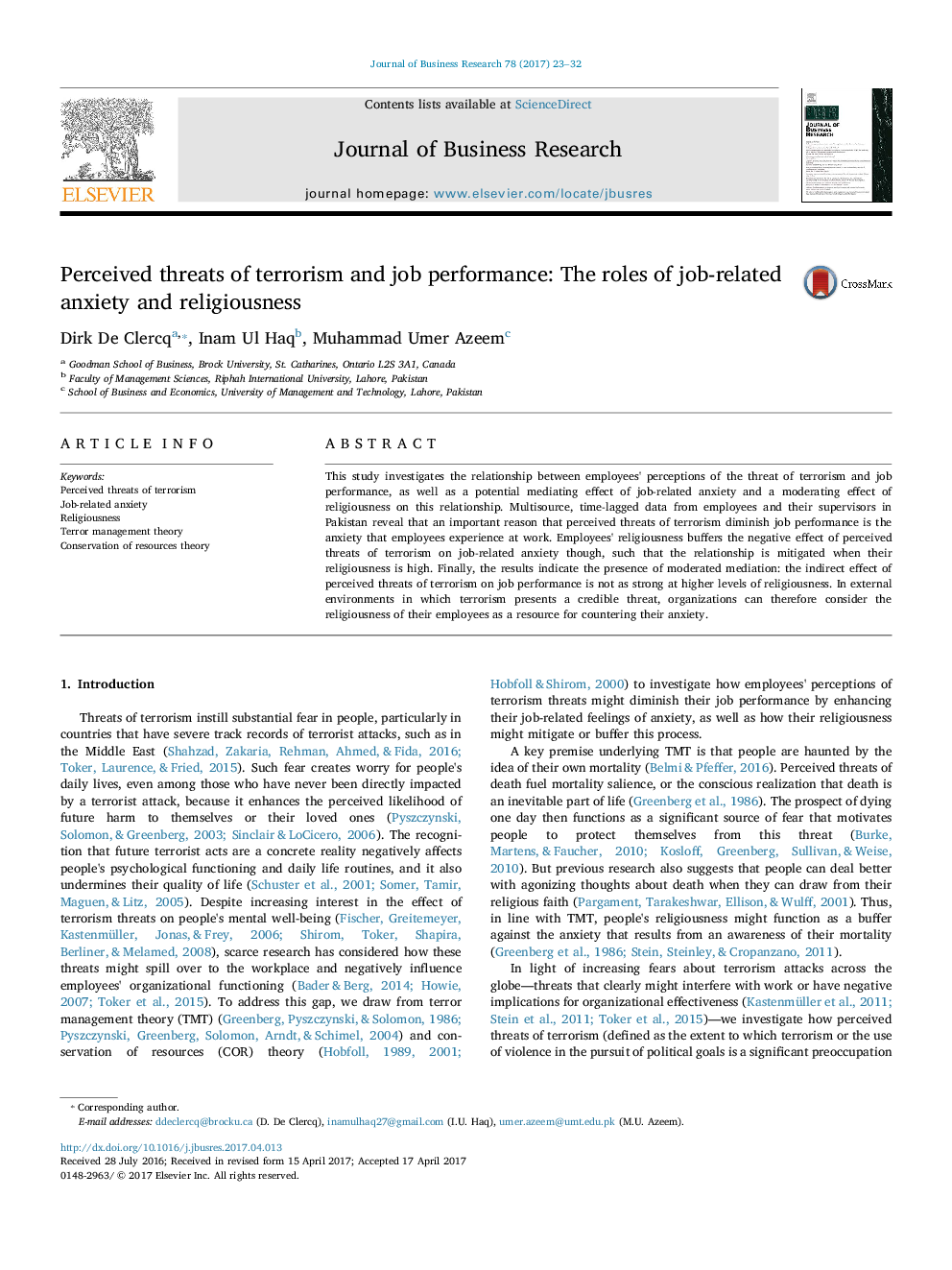ترجمه فارسی عنوان مقاله
تهدیدات درک شده از تروریسم و عملکرد شغلی: نقش اضطراب و مذهب مرتبط با شغل
عنوان انگلیسی
Perceived threats of terrorism and job performance: The roles of job-related anxiety and religiousness
| کد مقاله | سال انتشار | تعداد صفحات مقاله انگلیسی |
|---|---|---|
| 160039 | 2017 | 10 صفحه PDF |
منبع

Publisher : Elsevier - Science Direct (الزویر - ساینس دایرکت)
Journal : Journal of Business Research, Volume 78, September 2017, Pages 23-32
ترجمه کلمات کلیدی
تهدیدات درک شده از تروریسم، اضطراب مرتبط با شغل، مذهبی، تئوری مدیریت ترس، حفاظت از نظریه منابع،
کلمات کلیدی انگلیسی
Perceived threats of terrorism; Job-related anxiety; Religiousness; Terror management theory; Conservation of resources theory;
ترجمه چکیده
در این تحقیق، رابطه بین ادراک کارکنان از تهدید تروریسم و عملکرد شغلی و همچنین تاثیر بالقوه میانجیگری اضطراب مرتبط با شغل و تأثیر متغیر مذهبی بر این رابطه بررسی شده است. داده های چند متغیره و زمان باقی مانده از کارکنان و ناظران آنها در پاکستان نشان می دهد که یک دلیل مهم که تهدید تروریسم درک شده، کاهش کارآیی شغلی، اضطرابی است که کارکنان در محل کار تجربه می کنند. مذهب کارکنان، تأثیر منفی تهدیدات درک شده تروریسم را بر اضطراب مربوط به شغل را با هم مخلوط می کند، به طوری که وقتی رابطه مذهبی بالا می رود، این رابطه کاهش می یابد. در نهایت، نتایج نشان می دهد که میانجیگری تعدیل شده است: تأثیر غیرمستقیم تهدیدات درک شده تروریسم بر عملکرد شغلی در سطوح بالاتری از مذهب بودن، قوی نیست. در محیط های خارجی که در آن تروریسم یک تهدید معتبر ارائه می دهد، سازمان ها می توانند دینداری کارکنان خود را به عنوان یک منبع برای مقابله با اضطراب خود در نظر بگیرند.

